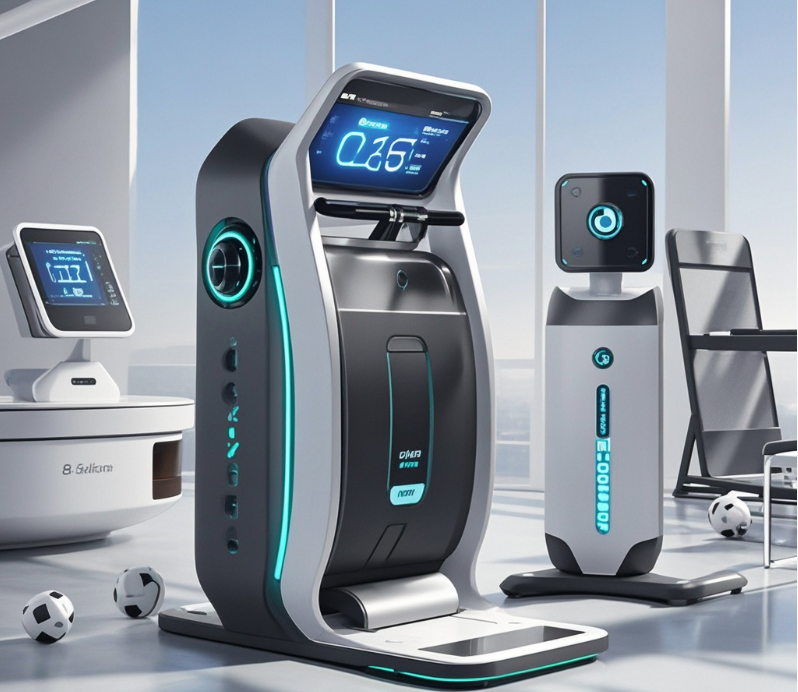Making Wireless IoT Project Easy, Smart, Secure.
GET A FREE SAMPLEThe Bluetooth module has implemented innovative applications in smart sports devices, including real-time data monitoring and personalized feedback, intelligent training mode and remote guidance, team collaboration and competitive analysis, virtual reality and augmented reality integration experience, as well as device interconnection and intelligent management.

1. Real time data monitoring and personalized feedback
Multi dimensional physiological data monitoring: The Bluetooth module enables smart sports devices to monitor real-time physiological data of athletes, such as heart rate, blood oxygen, blood pressure, body temperature, etc. It can also track exercise data, such as steps, distance, speed, calories burned, etc. For example, a smart sports watch synchronizes this data to a mobile application through a built-in Bluetooth module, allowing users to have a comprehensive understanding of their exercise status and physical condition.
Personalized exercise recommendations: Based on monitored data and algorithm analysis, provide users with personalized exercise recommendations. For example, if the user's heart rate is detected to be too high, the device will remind the user through a Bluetooth connected phone or other terminal to reduce exercise intensity appropriately, adjust breathing rhythm, and avoid injury caused by excessive exercise.
2. Intelligent Training Mode and Remote Guidance
Training plan customization and push: Coaches can use Bluetooth modules to send customized training plans for athletes to their smart sports devices. Taking intelligent fitness equipment as an example, the device automatically adjusts training mode, resistance, speed and other parameters based on the received plan, achieving intelligent training.
Real time remote guidance: During athlete training, coaches can view athletes' sports data and status in real time through remote devices, provide real-time voice or text guidance through Bluetooth connection, correct movements in a timely manner, adjust training strategies, and improve training effectiveness.
3. Teamwork and Competitive Analysis
Team member information sharing: In team sports such as basketball, soccer, etc., the smart sports devices worn by athletes are connected through Bluetooth modules to share real-time location, exercise status, and other information. For example, in football matches, players can use smart wristbands to understand their teammates' positions and better coordinate tactics.
Competition data recording and analysis: Smart sports devices use Bluetooth modules to transmit various data during the competition to the backend system for in-depth analysis. These data can not only help coaches understand the performance of teams and players, develop more effective tactics, but also provide athletes with directions for improving their own skills and tactics.
4. Virtual Reality and Augmented Reality Fusion Experience
Immersive training scene construction: Bluetooth module connects smart sports devices with VR/AR devices to create virtual training scenes for athletes. For example, in swimming training, athletes wear VR devices and combine the data transmitted by the Bluetooth module in smart swimsuits to simulate swimming in various real water flow environments, improving the fun and challenge of training.
Enhanced interactive competitive experience: In competitive sports, AR elements are integrated into the game through Bluetooth technology, providing viewers with a brand new viewing experience. For example, in a basketball game, the audience can view real-time data, tactical analysis, virtual special effects, and interactive content of the players through a mobile application that connects to smart devices in the venue via Bluetooth, enhancing the viewing experience and sense of participation in the game.
5. Device interconnection and intelligent management
Intelligent sports device networking: Multiple intelligent sports devices can form a local area network through Bluetooth modules to achieve interconnection and collaborative work between devices. For example, in the gym, various smart fitness equipment can be connected through Bluetooth for unified management and control, providing users with a more convenient fitness experience.
Equipment status monitoring and maintenance: Using Bluetooth modules, smart sports devices can send real-time data such as device operation status and fault information to management terminals. Management personnel receive this information through mobile or computer applications, timely maintain and upkeep the equipment, ensure its normal operation, and improve its service life and efficiency.
Copyrights© Shenzhen Skylab Co.,LTD All Rights Reserved.

